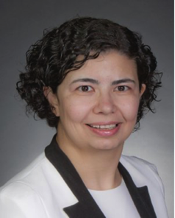
Keynote Speakers
Keynote #1 -- Tuesday 27 August 2024 -- 09:00-10:00
The future of HSI: Socio-ergonomics and human-AI integration
Artificial intelligence (AI) has invaded our lives, and human-AI teaming (HAT) should be explored further from a human systems integration (HSI) perspective, more specifically, model-based HSI. HAT is closely associated with the concept of autonomy. The concept of autonomy requires further investigation and a more formal physical and cognitive systemic representation supporting more detailed and meaningful analysis, specifically on situation awareness issues, decision-making, and risk-taking. A new question is: “To what extent should the machine be considered a tool or a partner?”
Therefore, we need to examine HSI based on a consistent definition of a system where humans and machines can be considered together using a homogeneous representation. More specifically, HAT analysis, design, and evaluation require the development of an appropriate ontology based on HSI and AI principles and concepts, such as HSI-based systems and AI-based agents. Along these lines and beyond the current trend of combining SE and AI, an even stronger need emerges to combine AI and HSI, defined as the intersection of Systems Engineering (SE), Human Factors and Ergonomics (HF/E), and Information Technology (IT).
AI allows the execution of tasks that usually require human intelligence, such as perception, conversation, and decision-making. AI includes many technologies and applications, such as knowledge-based systems, vision, speech, natural language processing, robotics, machine learning, and planning. If machine autonomy is a contemporary trend, human autonomy remains a significant concern when people must solve problems in unexpected situations using appropriate human skills and knowledge, technologies, and organizational setups. Underlying concepts, methods, and tools are currently being developed by the FlexTech Chair.
Whenever new life-critical machines, such as manned or unmanned aircraft or spacecraft, are developed, they must be certified to ensure safe, efficient, and comfortable operations. It is, therefore, crucial to develop metrics to evaluate and validate them. HAT-dedicated metrics will be presented from the perspective of machines considered partners, specifically operational performance, trust, and collaboration.
Prof. Guy André Boy, Ph.D., is an INCOSE Fellow, Chair of the HSI Working Group of INCOSE, and Chair of the Aerospace Technical Committee of IEA. He is FlexTech Chair Holder and University Professor at Paris Saclay University (CentraleSupélec) and ESTIA Institute of Technology, France. He was IPA Chief Scientist for Human-Centered Design (HCD) at NASA Kennedy Space Center, Dean of the HCD Institute at the Florida Institute of Technology, USA, President and Chief Scientist of the European Institute for Cognitive Science and Engineering, and Group Lead in the Artificial Intelligence Research Branch at NASA Ames Research Center. He is Fellow of the Air and Space Academy and the International Academy of Astronautics. https://en.wikipedia.org/wiki/Guy_Andr%C3%A9_Boy.

Jointly organized with

Keynote #3 -- Thursday 29 August 2024 -- 09:00-10:00
Human Systems Integration Across the Health Care Continuum: Examples, Opportunities, and the Future
There is an increasing and urgent need for infusing Human Systems Integration (HSI) and Human Factors Engineering (HFE) principles and methods to improve safety and quality of operations in complex, adaptive sociotechnical work systems such as in health care. In this presentation, Dr. Gurses will describe how HSI and HFE can be used to improve care across the entire care continuum (i) by systematically identifying hazards to patient safety, health care worker safety, and equity; and (ii) by developing effective and sustainable human-centered interventions with the purpose of eliminating and/or mitigating these hazards and improving adaptive capacity and resilience of the frontline care work and public health. Examples from a variety of health care settings (i.e., emergency department, operating rooms, patient home), and focus areas (e.g., infection prevention and control, pandemic preparedness, care transitions/ handoffs, healthcare information technology) will be provided. Lessons learned across the different projects and implications for future HSI efforts will also be discussed.
Ayse P. Gurses, PhD, MS, MPH is the Director, Center for Health Care Human Factors, Armstrong Institute, Johns Hopkins Medicine, and Professor, Schools of Medicine, Bloomberg Public Health, Whiting Engineering, Johns Hopkins University. Dr. Gurses is a globally recognized researcher, educator, and thought leader in infusing human factors and systems engineering principles and methods into health care work systems to improve safety, quality and equity in health care. She is the Founding Director of the Center for Health Care Human Factors at the Johns Hopkins Armstrong Institute for Patient Safety and Quality and Professor in the Johns Hopkins University Schools of Medicine, Bloomberg Public Health and Whiting Engineering. She is the author of more than 100 peer-reviewed publications. She has been a principal/ co-principal investigator on numerous research grants and contracts- funded by the Agency for Healthcare Research and Quality (AHRQ), Centers for Disease Control and Prevention (CDC), National Institutes of Health (NIH), National Science Foundation (NSF), other multiple foundations and private institutions- totaling over $20M.
Dr. Gurses's current research efforts include, but not limited to human-centered and health-IT based clinical work system design, modeling cognitive and team work to improve diagnostic safety in emergency department, re-engineering complex work systems to reduce healthcare-associated infections, improving safe management air flow and aerosol generating procedures in the operating rooms to reduce infection transmission, improving safety of care transitions/ handoffs, using a systems engineering approach to improve pre-hospital care of older adults, and improving patient-care professional partnerships to enhance safety across the entire care continuum. Dr. Gurses has conducted research in a variety of care settings, including pre-hospital care, inpatient care, ambulatory care, long-term care, and home care, as well as transitions of care between these settings. Dr. Gurses served as a member of an ad-hoc National Academies Committee on a 2-year effort that produced the 2022 report titled “Frameworks for Protecting Workers and the Public from Inhalation Hazards.” She was also among the 15 invited experts for participation in the AHRQ Director's Roundtable, A Call to Action to Improve Healthcare Safety Significantly and Sustainably. Dr. Gurses served as an Editor/ Scientific Editor for several journals including the Applied Ergonomics and the IIE Transactions on Healthcare Systems Engineering. Currently, Dr. Gurses is an Executive Committee Member of the Human Factors and Ergonomics Society. Dr. Gurses received multiple awards for her contributions to the science of safety, including the Federation of Associations in Behavioral and Brain Sciences Foundation Award, Liberty Mutual Award on Safety, and the International Ergonomics Association Best Paper Award in Occupational Safety and Ergonomics.
In addition to advancing the science of safety, Dr. Gurses's health care human factors program has had a wide practical impact in the frontline clinical work and public health. For example, when the Ebola epidemic hit in 2014, she led the Johns Hopkins Armstrong Institute's efforts in partnering with the CDC to develop a web-based training to prepare health care professionals for potential Ebola cases by integrating human factors and industrial engineering, implementation science, and public health principles and methods with infection control and prevention and clinical expertise. Recently, as part of the CDC's Project Firstline Initiative, and in collaboration with the JHU Applied Physics Laboratory, Dr. Gurses led a large-scale, multidisciplinary, innovative project aimed at improving infection prevention and control in the peri-operative work systems using engineering-based approaches across the nation.
Keynote #2 -- Wednesday 28 August 2024 -- 09:00-10:00
Taking measure of Human Systems Integration: A view from NASA
Building on work from recent NASA studies, Dr. Null will discuss challenges and successes of implementing Human System Integration approaches across mission life cycle. Topics will include the implications of focusing on human resilient performance for mission and system design; the use of quantitative analyses of human performance in development of a mission architecture; and the need to expand HSI metrics.
Dr. Cynthia H. Null is the Technical Fellow for Human Factors for the NASA Engineering and Safety Center (NESC). The NESC was created in 2003, after the Columbia space shuttle accident, to perform value-added independent engineering assessments of NASA’s high-risk programs to ensure safety and mission success. In this role, Dr. Null and her team of HSI and human performance experts identify technical risks in NASA programs; develop and execute studies to fill knowledge gaps; provide recommendations focused on HSI issues; and propose strategies to improve discipline capabilities.
Prior to joining the NESC, she managed NASA researchers and research programs for Aeronautics and Human Space Flight.
Before joining NASA, she was on the faculty at the College of William and Mary for 18 years, and she was the managing editor of the journal Psychometrika for 20 years.
Dr. Null received a BA in Mathematics from Albion College, and an MA and Ph.D. in Quantitative Psychology from Michigan State University.





